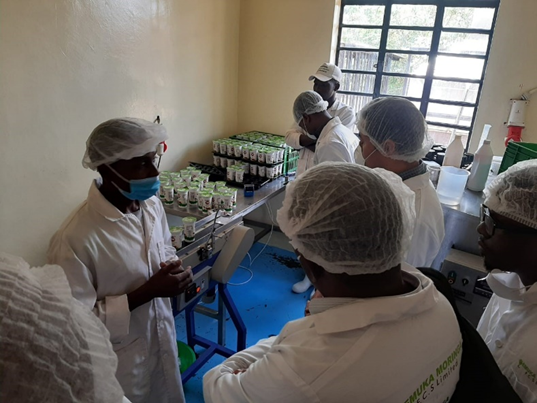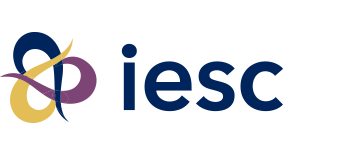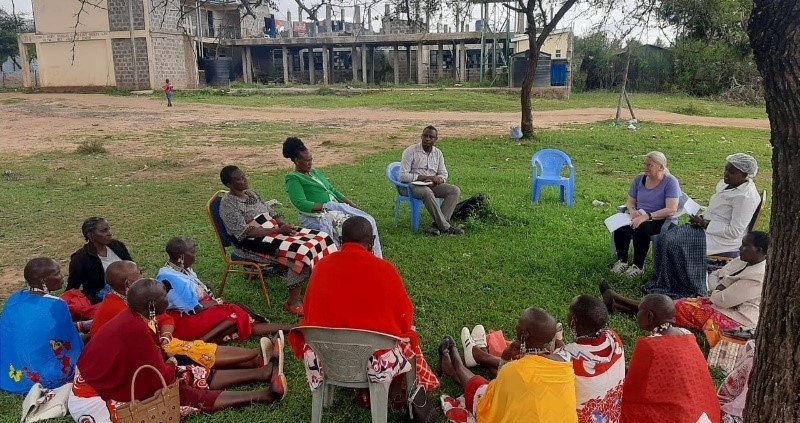Empowering The Maasai Women
HOW F2F VOLUNTEERS SUPPORTED SAMLI DAIRY COOPERATIVE TO TRANSFORM THE LIVES OF MAASAI WOMEN
Josephine did not consider rearing dairy cows as a business opportunity until she teamed up with her neighbors in Emali, Kenya. It is the culture of the Maasai to value the cow more than the milk it produces. Like many Maasai women in Emali, all she wanted was a cow that could produce enough milk for her six children.
Through the USAID-funded Farmer-to-Farmer (F2F) program in Kenya, IESC and Child Fund International teamed up to provide volunteer technical assistance to a startup called Samli Dairy Cooperative, which was founded in 2021 by a group of Maasai women in Emali, Kajiado County. The F2F support aimed to transform the social startup enterprise into a market-driven entity that is profitable, accountable, and capable of transforming the livelihoods of the poor women and children in the community. The support delivered by F2F through targeted volunteer assignments changed how Josephine viewed her milk; it was once simply used for household consumption but was now transformed into a potential business opportunity.
Maasai are nomadic people, moving from one place to another in search of pasture for their animals and food for their families. However, increasing land acquisition and land subdivision into private property throughout Kenya’s Maasai land has threatened this nomadic culture, forcing the Maasai to lead a sedentary life. Supporting Maasai women to commercially raise dairy cattle, which most families already possess, is a game changer in the quest for their economic transformation.
The F2F program provided technical support to Samli Dairy to improve its governance and implement effective strategies to grow its membership. Over the course of four Farmer-to-Farmer assignments completed by seven volunteers, Samli Dairy has become more democratic, accountable, efficient, and transparent through the adoption of new internal policies, procedures, and membership standards. The technical support also helped the organization to become more responsive to market needs, and it has subsequently been able to attract and retain satisfied smallholder dairy farmers as milk suppliers. Daily milk delivery for the cooperative has grown from and membership has also shot up from an initial 60 members to a current 1,250.
Josephine heard of Samli Dairy from a friend who boasted about the prompt payments to milk suppliers and the training support farmers received through F2F and other partners. Josephine joined the cooperative and actively participated in the capacity building exercises and training opportunities, eventually emerging as one of the community leaders. Her farm productivity and income has grown significantly since. Not only does Josephine have a reliable milk supply for her children, but she now has a reliable source of income from selling milk. Being a member of the Samli Dairy Cooperative gives her protection as a vendor, and most importantly, she now has peace of mind that there is enough money to send her children to school.

F2F partner team exchange ideas with Samli Dairy management during a visit to their new yogurt production plant. Samli now processes 300 kgs of milk into packaged yogurt daily.
“As you can see,” Josephine says pointing at her herd, “this project has totally transformed our lives.” She adds, “It was like a dream come true. I saw all my financial problems vanishing right before my eyes!”
The Samli Dairy Cooperative is giving farmers like Josephine a consistent and reliable market for milk. Prior to the formation of the cooperative, farmers like Josephine had to depend on unreliable milk vendors who would pay low milk prices and sometimes fail to collect the milk altogether. Being in the cooperative also brought her peace during her recent pregnancy.
“I couldn’t imagine how I could have handled the brokers when I was expecting. They take advantage of women, old and pregnant, who cannot run after them for their milk money,” she says. “The cooperative came at the opportune time, allowing me to rest and wait for my payment through mobile money at the end of each month.”
Currently, Josephine milks one cow and collects an average of five kilograms of milk per day, two kilograms of which are consumed in her own household and the remaining three kilograms are sold through the cooperative. A second cow is expected to start producing milk for her business soon. The future looks bright for Josephine and her family; now that she has a reliable income stream, improving milk production is her next focus.
The American people, through the U.S. Agency for International Development, have provided economic and humanitarian assistance worldwide for more than 50 years. The John Ogonowski and Doug Bereuter Farmer-to-Farmer Program (F2F) provides technical assistance from U.S. volunteers to farmers, farm groups, agribusinesses and other agriculture sector institutions in developing and transitional countries with the goal of promoting sustainable improvements in food security and agricultural processing, production and marketing.



